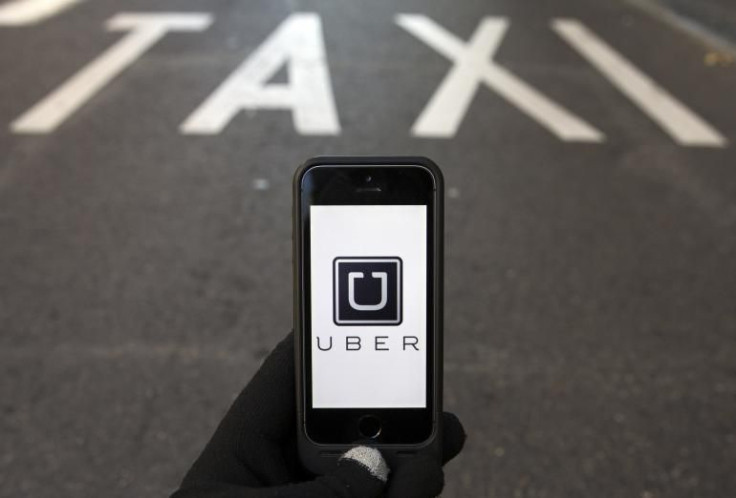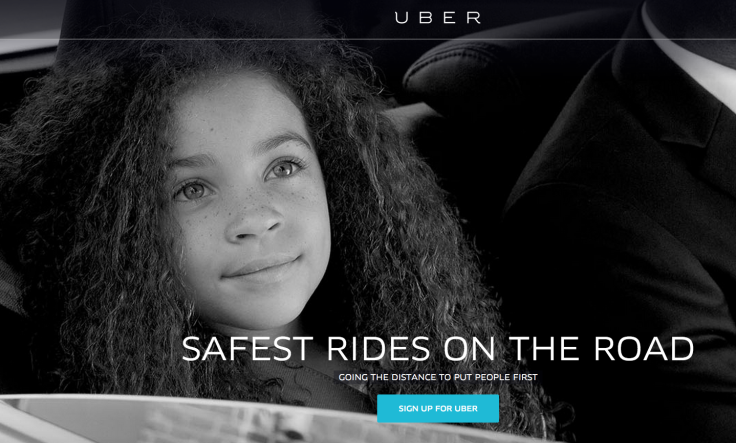Uber Safety Lawsuit: Lax Ride-Sharing Model ‘Inherently Dangerous,’ Class Action Claims

Uber is keen on boasting that it has the “safest rides on the road,” but a lawsuit is looking to make a dent in that claim. The litigation, filed Monday in U.S. District Court in Northern California, accuses Uber Technologies Inc., the popular ride-sharing firm based in San Francisco, of willfully misleading riders by pitching itself as a safe transportation option despite a litany of "negligible" security precautions.
The lawsuit asserts that Uber’s marketing materials routinely make unsubstantiated statements meant to lull potential customers into a false sense of security and “dispel the concern many would have about getting into the backseat of a stranger’s car.” The legal complaint cites numerous promotional materials on the Uber website, featuring pictures of young women getting into Uber cars along with statements such as the following:
“From the moment you request a ride to the moment you arrive, the Uber experience has been designed from the ground up with your safety in mind.”

Despite the catchy tagline, Jacob Sabatino, an Uber customer from Orange County, California, and the single named plaintiff on the suit, says safety is the last thing on Uber’s mind. In the suit, lawyers for Sabatino assert that Uber has no training program, offers no oversight or supervision of its drivers and, in fact, doesn’t even meet them in person.
What’s more, while Uber insists it conducts “industry-leading” background checks on drivers, those background checks are outsourced to a third party.
From the complaint:
“Uber does not guarantee the suitability, safety or ability of third party providers ... By using the services, you acknowledge that you may be exposed to situations involving third party providers that are potentially unsafe, offensive, harmful to minors, or otherwise objectionable, and that use of third party providers arranged or scheduled using the service is at your own risk and judgment. Uber shall not have any liability arising from or in any way related to your transactions or relationship with third party providers.”
A spokesperson for Uber did not immediately respond to a request for comment.
The subject of Uber safety has gained increased attention over the last few months. In December, an Uber driver in New Delhi was charged with raping a 27-year-old woman. That same month in South Africa, Nikki Williams, a singer, was allegedly harassed by her Uber driver. After numerous sexual-assault allegations emerged against Uber drivers in Chicago and Boston, the company added a “safe ride checklist” in those cities in January, but critics said it doesn’t go far enough.
And maybe it never will, according to Sabatino, who said Uber “recognizes” that putting members of the public in strangers’ personal cars is an “inherently dangerous” way to do business. “Fundamental to Uber’s model is the inherent concept that members of the consuming public will be stepping into the backseat of a stranger’s private car with virtually no oversight or protection,” Sabatino’s lawyers wrote. “There are no security cameras, no special markings on the cars, and no sense of company or authoritative oversight.”
Sabatino is suing on the grounds of unfair competition, false advertising and violating California’s Consumer Legal Remedies Act. His lawyers are seeking an enjoining order to stop the alleged violations. Non-specific damages are also sought.
The lawyers also are seeking class-action status that would include all U.S. customers who have downloaded and used the Uber app to obtain rides from the company.
Christopher Zara is a senior writer who covers media and culture. Got a news tip? Email me here. Follow me on Twitter @christopherzara.
© Copyright IBTimes 2024. All rights reserved.





















